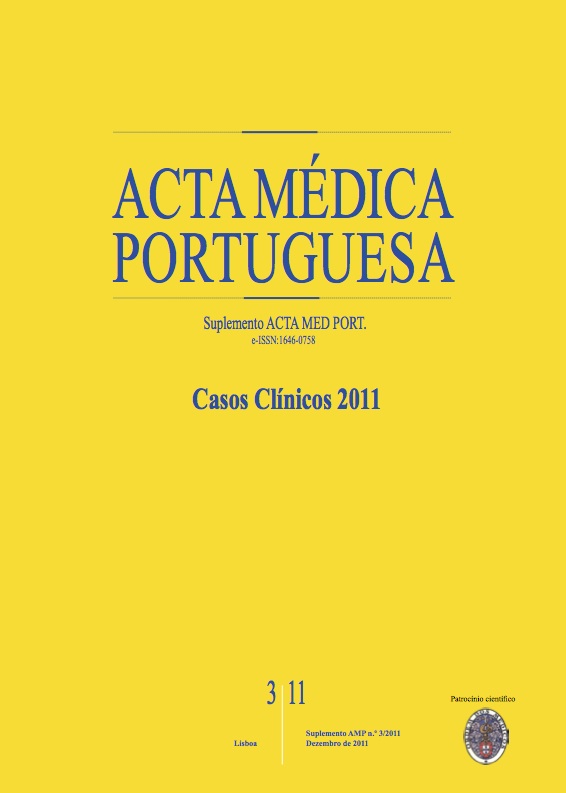Bacterial meningitis. A rare cause.
DOI:
https://doi.org/10.20344/amp.1553Abstract
Meningitis is an uncommon clinical manifestation of invasive infection by Streptococcus pyogenes.A four years-old female child, previously healthy, started a history of high fever, associated to right otorrhea, prostration and vomiting. On admission she was haemodynamically stable but prostrated, with stiff neck and right otorrhea. Laboratory evaluation showed leukocytosis with neutrophilia, thrombocytosis and high C-reactive protein. The cerebrospinal fluid (CSF) examination suggested bacterial meningitis and treatment with ceftriaxone was started. After Streptococcus pyogenes grew in the CSF, clindamycin was added. She completed 15 days of antibiotics and was discharged clinically recovered. No neurological or hearing sequelae were observed.Although the incidence of group A streptococcal meningitis seems to be low, invasive infection by this agent is raising. Despite the excellent evolution of this case, a fatal outcome or neurological sequelae can arise, even in healthy children.Downloads
Downloads
How to Cite
Issue
Section
License
All the articles published in the AMP are open access and comply with the requirements of funding agencies or academic institutions. The AMP is governed by the terms of the Creative Commons ‘Attribution – Non-Commercial Use - (CC-BY-NC)’ license, regarding the use by third parties.
It is the author’s responsibility to obtain approval for the reproduction of figures, tables, etc. from other publications.
Upon acceptance of an article for publication, the authors will be asked to complete the ICMJE “Copyright Liability and Copyright Sharing Statement “(http://www.actamedicaportuguesa.com/info/AMP-NormasPublicacao.pdf) and the “Declaration of Potential Conflicts of Interest” (http:// www.icmje.org/conflicts-of-interest). An e-mail will be sent to the corresponding author to acknowledge receipt of the manuscript.
After publication, the authors are authorised to make their articles available in repositories of their institutions of origin, as long as they always mention where they were published and according to the Creative Commons license.









